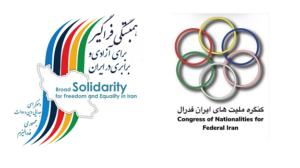Ahwazi Community in the UK demonstrated in front of the Amnesty International on Tuesday 17 March 2015 against the persecution of the Arabs by the Iranian regime. Following the protest a group of Ahwazi activists met with Mrs Hassiba Hadh Sahraoui, the Deputy Director of Middle East and North Africa Programme.
Abdulrahman Al-Ahwazi, from the Patriotic Arab Democratic Movement in Al-Ahwaz, highlighted the environmental crisis in the region which caused by building water dams in the area of Al-ahwaz (Khuzestan). Al-Ahwazi stated that climate in the province of Al-ahwaz is dependent on the main rivers such Karoun, Karkheh and Jarrahi. The Iranian authority built more than 40 water dams, and 36 are under construction while 176 are planned to be built in future. Consequently, these dams led to dry international marshlands such Fallahiya and Hur-alazim and disruption of biodiversity.
Ali Moramazy, represented the Ahwazi Democratic Popular Front mentioned the dramatic increase the toll of executions in Iran, specifically in Al-ahwaz. Moramazy said that the number of executions within 18 months of Hassan Rouhani presidency reached 1193 mainly from non-Persian nations like Ahwazi Arabs, Kurds, Azaris and Baluchi. Moramazy also mentioned the execution of Hadi Rashedi and Hashem Shaabani, Ahwazi poets who were executed by the Iranian regime in February 2014 due to their cultural activities.
Amir Saedi from the Ahwazi Human Rights Organisation showed the very high rates of unemployment among Ahwazi Arabs in the province, despite that the region reserves more than 80% of the Iranian oil export. Saedi also added that the rates of cancer raised by 500 times among Ahwazi Arabs as a result of air pollution caused by the industrial and oil activities. Saedi showed that an Ahwazi Arab young man set himself alight in front of the municipal office Mohammarah (Khorramshar) when the security officers confiscated his kiosk on Saturday 14 March 2015, he was admitted to local hospital and is in critical situation. Younes Asakereh, 34, married with two kids, used the kiosk as the only source of income, and he lives with his family in a rented place and the contract ended and was asked to live the place.
Abid Hanun Al-shamary, Ahwazi Center for Human Rights Defence said that Arabs are subjected to discrimination, and the Iranian regime banned the education with their mother language. The Iranian authority has never implemented the Article 15 of the state’s law which says non-Persian nations have the right to educate in their mother language. Al-shamary seeks the Amnesty International to arrange events and opportunities for Ahwazi Arabs to represent human rights violations subjected by the Iranian regime.
Amir Saedi is an Ahwazi human rights activist


























